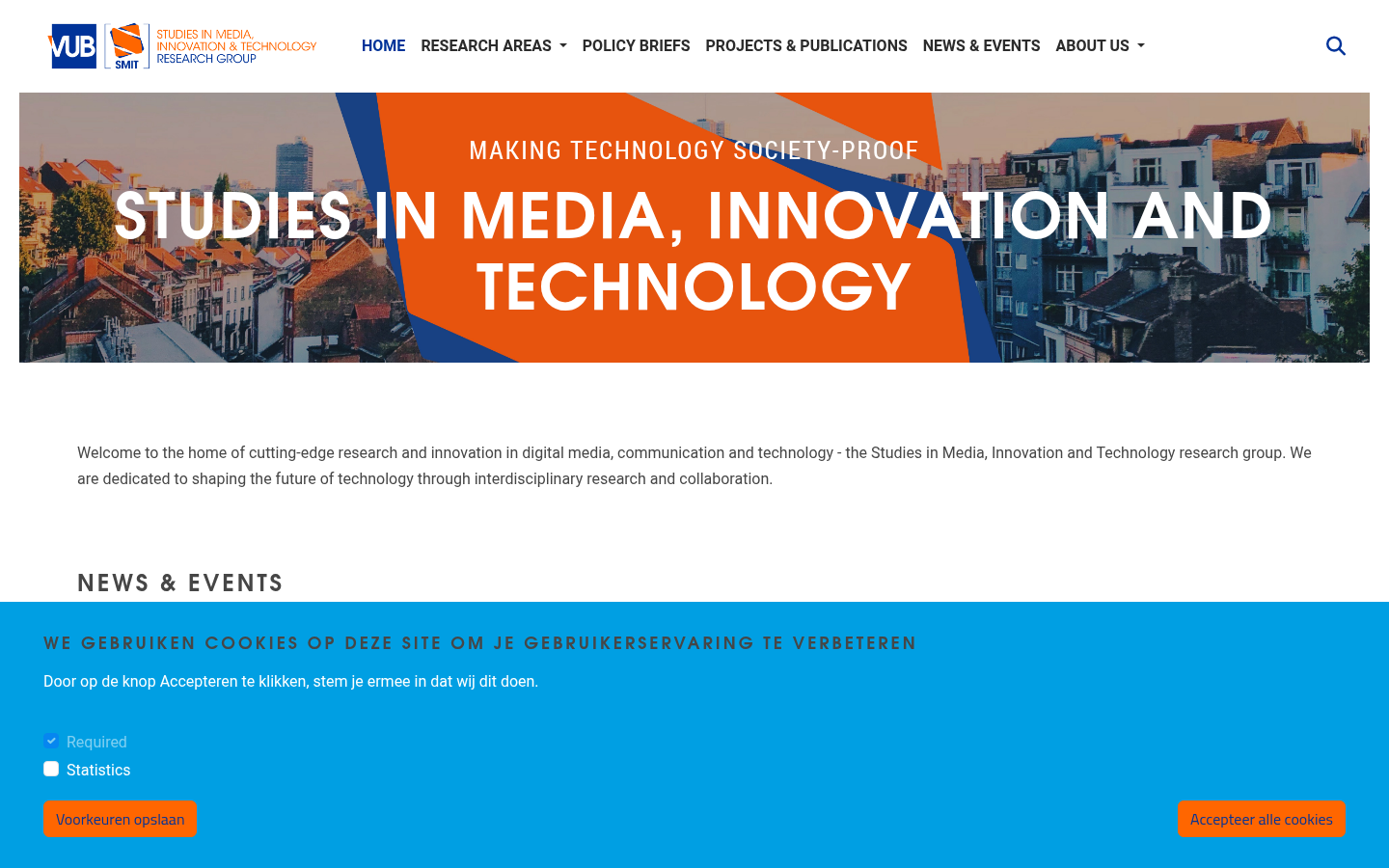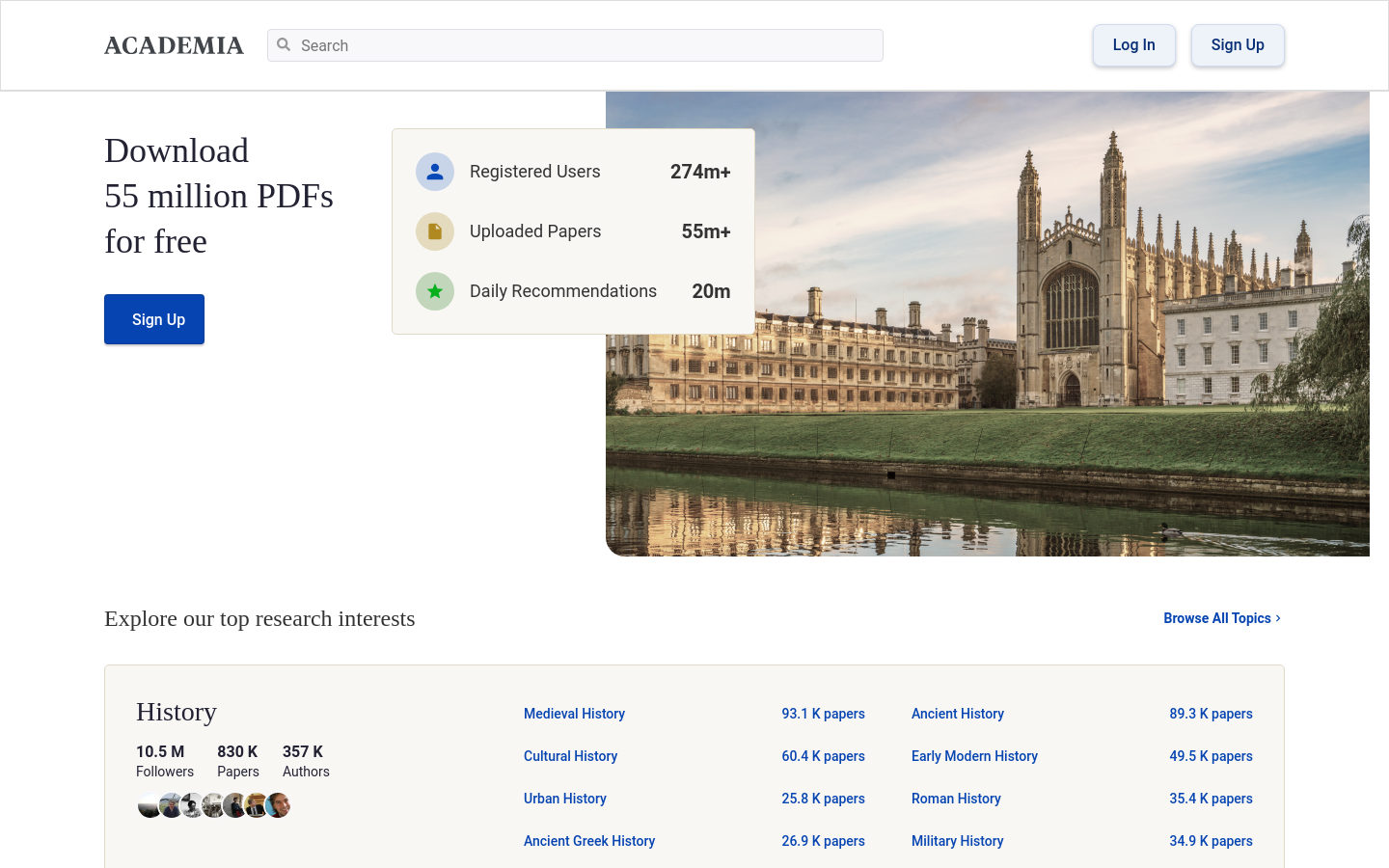Civic Tech Field Guide
Sharing knowledge and productively growing the fieldThe People > Learn about civic tech > Academia - (139)
Academic programs, relevant research centers, journals, and peer-reviewed articles.
Showing 139 Results

Defending Democracy in a Digital World
MassachusettsZuckerman and students explore digital media, polarization, and democracy

The Workers' Algorithm Observatory (WAO)
Princeton University, Princeton, New Jersey, USAWorker-led audits in the platform economy

The Centre for Media, Technology and Democracy examines how media and emerging technologies shape democracy.

Applied Social Media Lab (ASML)
Berkman Center For Internet, Everett Street, Cambridge, MA, USAThe Applied Social Media Lab at Harvard’s Berkman Klein Center brings together technologists and practitioners to reimagine, rebuild, and reboot social media to serve the public good and establish a long-lasting community of practice.

School for Poetic Computation (SFPC)
New York CitySchool for Poetic Computation (SFPC) is an experimental school in New York and online founded in 2013. SFPC facilitates the study of art, code, hardware, and critical theory through lenses of decolonization and transformative justice.

Escola Nacional de Administração Pública (ENAP)
Brasília - Brasilia, Federal District, BrazilConhecimento e prática para a transformação do Estado

Instituto de Governo Aberto
São PauloTransparência, participação e inovação para uma sociedade mais justa, inclusiva e igualitária

The DSI Community Democracy at the University of Zurich focuses on research related to the impact of digitalisation on the political system, on democracy, and on related topics.

alphaXiv
Stanford University, Serra Mall, Stanford, CA, USAStudents at Stanford have built alphaXiv, an open discussion forum for arXiv papers

The McSilver Institute for Poverty Policy and Research at New York University
New York University, New York, NY, USAResearch, programs and interventions that address the root causes and consequences of poverty. Learn moreabout What We Do

Protests in the United States on Palestine and Israel, 2023–2024
Harvard University, Cambridge, MA, USAAnalyzes the size, rhetorical nature, and non-violent nature of the pro-Palestine protest wave, which it finds to be "the largest, most sustained US protests sparked by a foreign event" since their data became available in 2017. Published in Social Movement Studies

Improving Delivery of the Social Safety Net: The Role of Stigma
United States of America (the)Article in Journal of Public Administration Research and Theory by Jessica Lasky-Fink and Elizabeth Linos

How to Think/Act in Dark Times: Exploring a Critical Praxis
The New School, East 13th Street, New York, NY, USATaught By: Eduardo Staszowski

Fritz Family Fellowship at Georgetown University Tech & Society
Georgetown University, Washington, DCBuilding on expertise from across Tech & Society, the Fritz Family Fellowship aims to cultivate the next generation of leaders with expertise in the social impacts of technology, and build a network of public interest technologists who learn from and support each other’s work.

Civic Service Design Graduate Minor at The New School
The New School, East 13th Street, New York, NY, USAThe Civic Service Design minor draws upon a practice and subfield of research and theory that connect to design, social theory, and public policy and management frameworks, methods, and tools to reformulate participation and decision making in the creation of public policies, programs, and services, with the goal of fostering more just and equitable cities and societies.


Storytelling with Data Course
The New School, East 13th Street, New York, NY, USATaught by Maria Massei-Rosato

Public & Collab Services Course
The New School, East 13th Street, New York, NY, USAA core course for the Graduate Minor in Civic Service Design at Parsons School of Design at The New School, taught by Lara Penin

We are dedicated to shaping the future of technology through interdisciplinary research and collaboration.

Center for Science and the Imagination
Arizona State UniversityArizona State University’s Center for Science and the Imagination brings writers, artists and other creative thinkers into collaboration with scientists, engineers and technologists to reignite humanity’s grand ambitions for innovation and discovery.

HAC is the world's most expansive home for bold and risky humanities thinking about our political world inspired by the spirit of Hannah Arendt.

Democracy Innovation Hub
New York, USAWe convene and train public servants, community leaders and educators to use participatory methods of engagement and tools, with a focus on citizens’ assemblies.

Journal of Democracy
Baltimore, MDFocusing exclusively on democracy, the Journal monitors and analyzes democratic regimes and movements around the world.

Bloomberg Center for Cities at Harvard University
Harvard Kennedy School, John F. Kennedy Street, Cambridge, MA, USAFounded in 2021 with Bloomberg Philanthropies, the Bloomberg Center for Cities at Harvard University serves a global community committed to improving public management, leadership, and governance.

Nonviolent Action Lab
Harvard Kennedy School, John F. Kennedy Street, Cambridge, MA, USAThe Nonviolent Action Lab is an innovation hub for activists, researchers, and supporters who share common goals around defending and advancing democracy worldwide through civil resistance — protests, demonstrations, and other actions.

Ash Center for Democratic Governance and Innovation
Harvard University, Cambridge, MA, USAHarvard’s hub for research and teaching on democracy

Allen Lab for Democracy Renovation
Harvard Kennedy School, John F. Kennedy Street, Cambridge, MA, USAThe Allen Lab for Democracy Renovation aims to reinforce democracy through strengthening institutions, building interpersonal and informational trust, and reducing hyper-partisan affective polarization with research and field-building.

We propose an alternative platform model that the social fabric an explicit output as well as input. By E. Glen Weyl, Luke Thorburn, Emillie de Keulenaar, Jacob Mchangama, Divya Siddarth, Audrey Tang

Governance of Emerging Technology and Tech Innovations for Next-Gen Governance (GETTING-Plurality)
Harvard Kennedy School, John F. Kennedy Street, Cambridge, MA, USAA multi-disciplinary research network linking philosophers, social scientists, computer scientists, legal scholars, and technologists.

AI and Democracy Movements Project
Harvard Kennedy School, John F. Kennedy Street, Cambridge, MA, USAThe AI and Democracy Movements Project explores the impacts of AI on the strategy, operations, and outcomes of pro-democratic social movements.

Wiki Education
Chico, CaliforniaWiki Education engages students and academics to improve Wikipedia

The Dialogue on Technology Project (DoT)
Burnaby, CanadaDoT’s mission is to convene a sustained and nuanced societal dialogue between leaders, experts and community members around the social impacts of AI in British Columbia and Canada.

Hey Neighbour Collective
Burnaby, CanadaHey Neighbour Collective (HNC) is a collective impact project that brings together housing providers, researchers, local and regional governments, housing associations and health authorities to experiment with and learn about ways of effectively building community, social connectedness and resilience in B.C.’s fast-growing vertical communities.

Mitigating Wildfire
Burnaby, CanadaThe Mitigating Wildfire Initiative facilitates dialogue and collaboration to identify and advance solutions that address the fundamental changes happening in wildfire risk and management in British Columbia.


Responsible Use of Decision-Making Algorithms in the Public Sector: a Case Study Approach
Paris, FranceCourse designed and taught by Soizic Pénicaud at Sciences Po Paris’ Graduate School of Public Affairs in September-December 2021, 2022, 2023, 2024.

Generative Agent Simulations of 1,000 People
Stanford University, Serra Mall, Stanford, CA, USAStanford + DeepMind study that used LLMs to simulate people with AI agents based on a 2-hour interview

Tufts Cybersecurity Center for the Public Good
MassachusettsResearch, Education, and Civic Engagement

MIT Center for Constructive Communication
MIT Media LabDesigning tools, methods and systems that connect rather than divide us to create a healthier society.

Accountability Research Center (ARC)
Washington, DCAccountability Research Center bridges research and frontline perspectives to learn from ideas, institutions, and actors that advance strategies to improve public and corporate accountability. Learn more Make a gift to ARC

Stanford Online Deliberation Platform
450 Serra Mall, Stanford, CA 94305, USAThe Online Deliberation Platform is a video discussion platform for groups of 8-15 people.

Global Technology for Social Justice Lab (GloTech) is a hub for interdisciplinary scholarship at the intersection of critical tech studies and global studies.

Academia.edu
San FranciscoFind Research Papers, Topics, Researchers

Empowering Indigenous Communities: Land Alienation in Tripura and Restoration through ICT Initiatives
India (Bhārat)Through a comprehensive analysis of various ICT projects, this study examines the success and challenges of using technology to protect and restore land rights.








